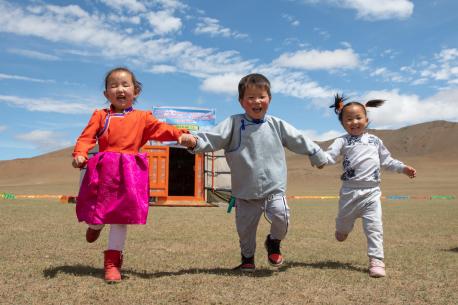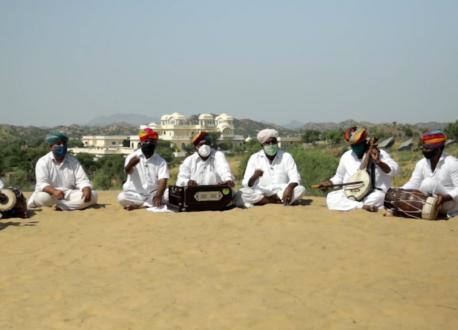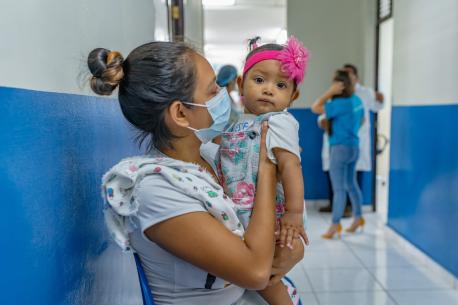
U.S. Congress Honors UNICEF’s 75th Anniversary
Both chambers of Congress have introduced bipartisan resolutions honoring UNICEF's work for children.
In 1946, UNICEF was created to offer emergency relief to children in the aftermath of World War II. Since then, UNICEF’s reach has evolved in response to the ever-changing needs of children worldwide. UNICEF’s presence has grown to over 190 countries and territories. Whether it is delivering emergency relief to children in armed conflict, providing water and sanitation to over 153 countries, immunizing nearly 3 billion children against polio, or procuring 75 to 80 percent of the world’s Ready-to-Use Therapeutic Food to treat severe acute malnutrition, UNICEF has not and will not stop until every child survives and thrives.
This December marks 75 years of UNICEF’s commitment to reach every child. To commemorate this milestone anniversary, both chambers of Congress have introduced bipartisan resolutions in support of UNICEF.
In the Senate, Senator Chris Coons (D-DE) and Senator Susan Collins (R-ME) introduced Senate Resolution 458 which:
- Applauds UNICEF for the critical role it plays in helping protect the rights and lives of vulnerable children around the world, including the global fight against COVID-19.
- Recommits to the United States’ partnership with and support for UNICEF.
- Pledges to work with UNICEF to reimagine the future for every child, as the world recovers and rebuilds from the global pandemic.
In the House, Representative Sara Jacobs (D-CA) and Representative Brian Fitzpatrick (R-PA) introduced House Resolution 853 which:
- Calls on the US to increase support for and work with international partners, including UNICEF, Education Cannot Wait, and the Global Partnership for Education, to address the education and health needs of every child as the world recovers and rebuilds from a global pandemic;
- Urges the Department of State, USAID, and other agencies to work together with UNICEF and other partners to reimagine basic education programs in foreign assistance, to ensure across childhood from the earliest years through adolescence;
- Urges the U.S. government to reinforce its diplomatic efforts with the international community to increase global support for the pandemic response in low- and middle- income countries, especially to promote greater vaccine equity across sub-Saharan Africa; and
- Urges the United States to support Giga, a global initiative to connect every school to the internet and every young person to educational resources and opportunities.
These resolutions exemplify the longstanding partnership between UNICEF and the United States government. Michael J. Nyenhuis, President and CEO of UNICEF USA, applauded the Congressional effort to recognize this anniversary: “On behalf of the ten million Americans who have supported UNICEF, I appreciate the bipartisan recognition of UNICEF’s anniversary and its effectiveness. Senator Coons, Senator Collins, Representative Jacobs and Representative Fitzpatrick are champions for children everywhere.”
On behalf of the 10 million Americans who have supported UNICEF, I appreciate the bipartisan recognition of UNICEF’s anniversary and its effectiveness. Senator Coons, Senator Collins, Representative Jacobs and Representative Fitzpatrick are champions for children everywhere. — Michael J. Nyenhuis, UNICEF USA President and CEO
UNICEF USA thanks them for their leadership in recognizing UNICEF and prioritizing a better future for every child.
Call on your members of Congress to join their efforts and cosponsor H.Res. 853 / S.Res 458 honoring UNICEF’s 75th anniversary.
TOP PHOTO: Young children play outside a UNICEF-supported mobile kindergarten housed in a ger — a traditional circular Mongolian tent — in Bayankhongor Province, Mongolia in 2018. The mobile kindergartens provide low-cost, high-impact pre-primary education for the children of nomadic herders in some of the country's poorest, most remote regions. © UNICEF/UN0220810/Matas

